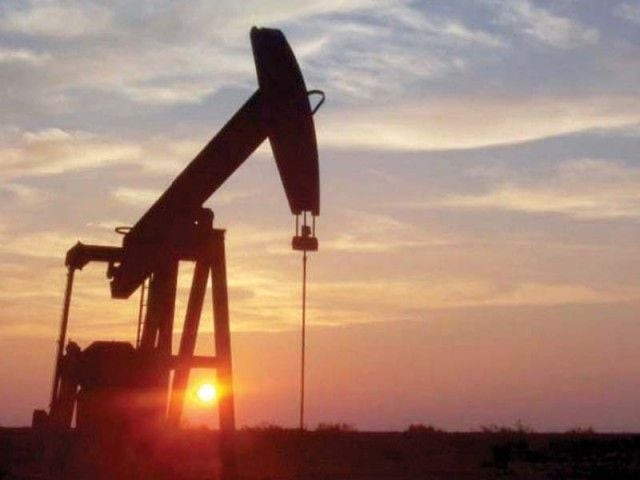Refinery policy to cut imports
Policy aims to double output of petrol, boost diesel production by 47%

The latest petroleum refinery upgradation policy offers financial incentives, encouraging Pakistan’s industry to significantly increase the production of high-premium products. The policy aims to double the output of petrol and boost diesel production by 47% in the coming years.
This multibillion-dollar and time-consuming initiative is expected to drastically reduce the import of refined products, thereby preserving precious foreign exchange reserves.
Survival for refineries hinges on upgrading their technology by installing deep-conversion refineries, a relatively new technology, alongside existing hydro-skimming refineries. According to a detailed report titled ‘Pakistan’s Refinery Sector Upgradation Policy to Incentivise Refineries’ by Arif Habib Limited (AHL), refineries endorsing the policy will receive additional tariff protection or deemed duty incentives, amounting to 10% for Motor Spirit (MS/petrol) and 2.5% for diesel for seven years.
The upgradation policy is projected to enable refineries to increase total production of MS (petrol) by over 99% and diesel by over 47%, while reducing the production of furnace oil by 78%.
Pakistan’s total average requirement for petroleum products over the last five years stands at 24 million tonnes. Of this, 11.35 million tonnes have been produced locally, while the remainder (12.90 million tonnes) was imported.
Although Pakistan has a total capacity of 20 million tonnes, it has failed to fully utilise it due to lower demand for furnace oil (FO) amid a shift in the energy mix within the power sector. Refineries are unable to significantly alter their production slate, resulting in reduced throughput, said the report.
The government, recognising the situation, announced a policy on August 17, 2023, for the upgradation of brownfield refineries, which was further amended in February 2024.
The government, with industry collaboration, prepared the policy. Respective refineries have already begun feasibility studies for independent upgrades to comply with Euro V specifications, maximise production of MS and diesel, and minimise production of furnace oil (FO).
Presently, Pakistan’s capacity for petrol, diesel, and furnace oil is 10,702 tonnes/day, 21,237 tonnes/day, and 15,417 tonnes/day, respectively.
In late January, Pakistan Refinery Limited (PRL) initiated a refinery expansion and upgrade project (REUP) at an estimated cost of $1.7 billion. The project aims to double its installed crude processing capacity to 100,000 barrels per day, boosting the production of high-margin products and low-sulphur fuel, including Euro-V petrol and diesel. The project is set to be completed by the end of 2028.
Explaining the investment source ($1.7 billion), PRL MD/CEO Zahid Mir stated in January that 25% of financing would be provided by the government, while the refinery would arrange $200 million annually by exporting furnace oil. The government collects a 10% duty on petroleum product sales and deposits it in an Escrow account, with funds available for refinery upgrade projects.
AHL anticipates “Attock Refinery Limited to opt for the upgradation agreement soon,” citing ATRL’s strong balance sheet and massive cash position of Rs66 billion (Rs616/share) with no debt.
The upgradation policy imposes a minimum 10% customs duty on imported MS and diesel for seven years, with any excess directed to the Inland Freight Equalisation Margin (IFEM) pool. Refineries ineligible for policy incentives must deposit the excess customs duty in IFEM. Additionally, customs duty on crude oil will be reimbursed to refineries via IFEM.
The policy grants refineries a 10% tariff protection/deemed duty on the ex-refinery price of MS and diesel for seven years. After this period, a 7.5% deemed duty on High-Speed Diesel (HSD) will persist for 20 years or until deregulation, whichever comes first.
Refineries importing used Plant, Machinery, and Equipment (PME) for upgradation can withdraw a maximum of 24.5% of the total project cost from the escrow account. Eligible refineries importing new PME can withdraw up to 27.5% of the total project cost from the escrow account.
Refineries eligible for fiscal incentives in this policy must enter into a legally binding upgrade agreement with OGRA within sixty (60) days following the notification of amendments to this policy. Upon executing the Upgrade Agreement, OGRA will grant a waiver to the respective refinery, allowing it to produce and market non-complying Euro-V specifications until the agreed completion date of the upgradation project, set within six years after signing the agreement.
Published in The Express Tribune, March 7th, 2024.
Like Business on Facebook, follow @TribuneBiz on Twitter to stay informed and join in the conversation.



















COMMENTS
Comments are moderated and generally will be posted if they are on-topic and not abusive.
For more information, please see our Comments FAQ